Starting Fresh: A Conversation with Jin Kyung

Jin Kyung escaped North Korea after experiencing her own modern-day Cinderella story. Her parents divorced when she was still young, and for a short time she lived comfortably with her father, but when her father remarried a year later, Jin Kyung’s life took a turn for the worse. Her father often worked away from home, leaving her alone with her stepmother, who scolded and punished her every day. Resolving to find a better life for herself, she escaped to China.
Jin Kyung was sold soon after crossing the border, but the family she had been sold into showed kindness and love to her. Unlike many women who are sold, she was allowed to come and go as she pleased. She came to be fond of the Chinese man and his parents. However, Jin Kyung wasn’t ready to settle for a life as an illegal immigrant in China despite being grateful for a happy home. Her new family helped coordinate her escape to South Korea, which she admits is not a common occurrence. After resettling in South Korea, she attended school and eventually reunited with the Chinese man, who is now her husband. They have a four-month-old son together and she’s currently a stay-at-home mom.
Our resettlement coordinator Anna visited with Jin Kyung and her son recently to see how they're doing.

Anna: What was the best thing that happened to you recently?
Jin Kyung: I’m grateful for every day for numerous reasons. It especially warms my heart to see my baby smiling, although taking care of him is sometimes physically demanding. My husband and I talked about having a second, but I’m not sure if I can handle it if I start attending college. In fact, I also passed the GED this past April and just submitted two college applications yesterday as a hair design and make-up artist major.

Anna: What's your biggest challenge in South Korea?
Jin Kyung: Raising a child is very challenging and sometimes tiring, but I enjoy it so much and want to have a second one as soon as possible.
After I got out of Hanawon and for a few months after that, I felt so lost and clueless.

Anna: How did you overcome the challenge?
Jin Kyung: Although many people recommended for me to go back to school, I only wanted to earn money to send to my family in North Korea. I soon found a job at a factory, but realized that there’s a limitation to the types of careers that I can pursue if I don’t get a proper education. I realized what my priority should be after working in a labor-intensive job at the factory.

Anna: Who has been the biggest help (outside of LiNK) to you since you arrived in South Korea?
Jin Kyung: A teacher from the alternative school that I attended the last few years. She is the one who actually got me interested in studying and led me to gain different perspectives on the world and life. She’s such an enthusiastic person who didn’t mind if I asked her questions, and she was always available when I needed her. I’ve been able to achieve as much as I have up until now thanks to her.

Anna: What was your biggest challenge in North Korea?
Jin Kyung: Living itself was very hard. I always faced starvation and struggled with serious domestic conflict. When I reached puberty, I abruptly left home to escape from that reality.
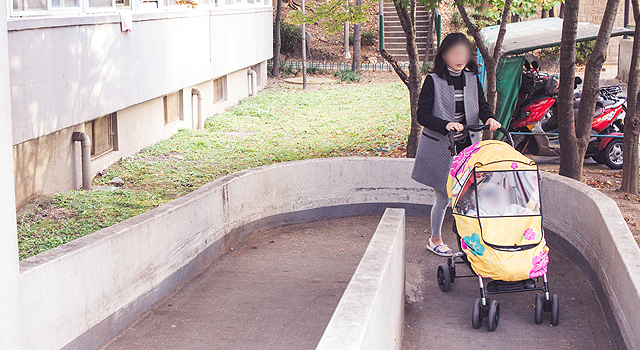
Anna: What is it like living in freedom in South Korea?
Jin Kyung: I believe resettling in a new society is not easy whether you have more freedom or not. I had an inferiority complex because I had a different intonation and background from South Koreans. For example, I couldn't even understand what a bank clerk was saying to me one time. I used to care so much what other people thought about me. It just takes time to adjust to a new community.

Anna: What is something that you started to do in South Korea that you never did before?
Jin Kyung: STUDY! I've always wanted to attend school to study and make friends since I was back in North Korea, but I had to leave school at a young age for family reasons. At first, I had no confidence in myself to study again, and I was honestly afraid to start anything at that time. The teacher whom I mentioned earlier, she boosted my confidence by lavishing me with praise. She encouraged me with praise for one correct answer instead of scolding me over nine wrong answers. In spite of many unfamiliar words in math, Korean, science, sociology, and history classes, I quickly gained more confidence and started to catch up! I’m still so proud of myself for passing the GED this year and I’m anxious, yet excited, to start college soon.

Anna: Have your perceptions of Americans and South Koreans changed?
Jin Kyung: I honestly had no spare time to care anything other than living day by day. I really didn't know much about other countries, but the fact that I grew up hearing bad things about them gave a negative impression. I actually used to think that the U.S. is the cause of separation of the Korean peninsula and wished that the U.S. had never existed, however, those thoughts all changed once I arrived in China by simply watching Korean movies and dramas.

Anna: What advice would you give to a friend who just arrived in South Korea?
Jin Kyung: I don’t think I’m in a position of giving them advice because there are many defectors who have lived here longer than I have. Nonetheless, I realized a few things as I resettled in South Korea. I wish North Korean defectors opened up their mind more to accept this new culture and engaged with South Koreans. I believe that it’s difficult to understand someone’s hardship if you haven’t been in the same situation, so I, as a North Korean defector, would like take an approach to get along with South Korean friends.

Anna: How often do you think about North Korea? What do you think about?
Jin Kyung: I should, but I tend not to think much about North Korea. I get upset whenever I think of North Korea because it brings out my hurtful memories and struggles. I’m also so sad and feel pity for those who still live under the miserable circumstances.
You can help more North Korean refugees escape China and resettle in a safe country. Start a fundraiser today!
A North Korean Refugee’s Daring Escape By Boat | Gyuri Kang’s Story
Escaping from inside North Korea remains almost impossible today. Borders remain sealed by the legacy of pandemic-era restrictions, while surveillance in China continues to intensify. But in 2023, a group of North Koreans crossed into South Korean waters on a small fishing boat—a rare and extraordinary way to reach freedom. Abroad the vessel was 22-year-old Gyuri Kang with her mother and aunt.
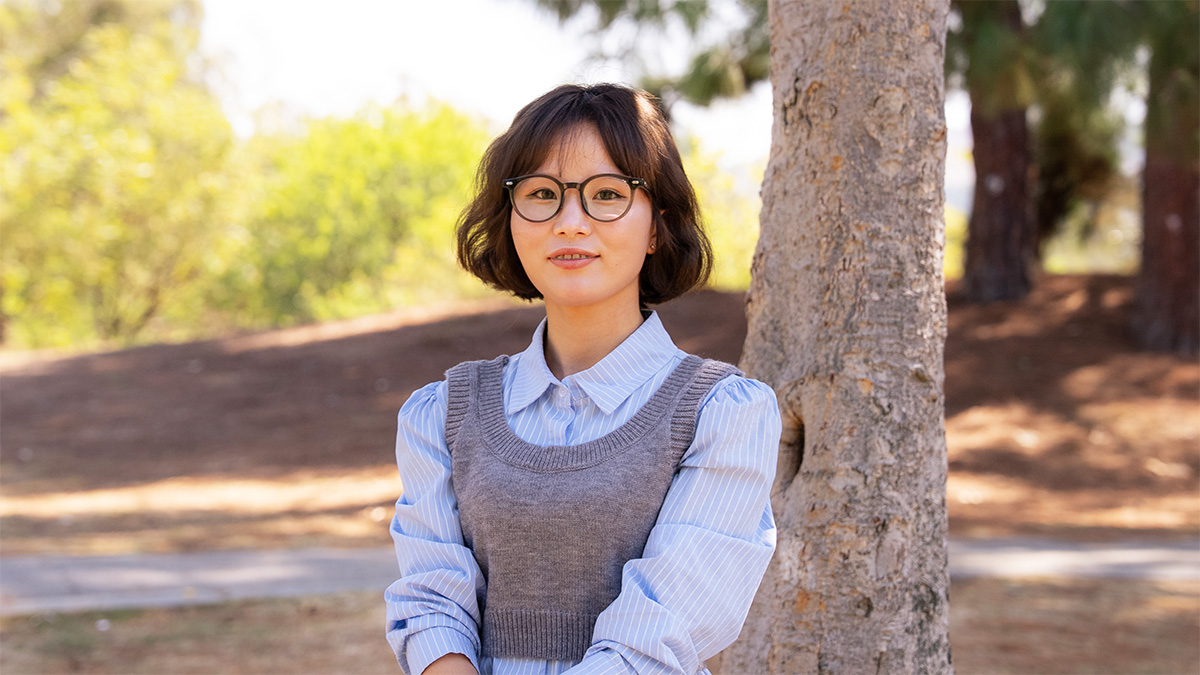
You were never supposed to know my name, see my face, or hear my story. Because I was one of 26 million lives hidden inside North Korea.
I was born in the North Korean capital, Pyongyang. The first time the government decided my future without my consent, I was only a child. My family was exiled to a rural fishing village because of my grandmother’s religion.
In the system we were living in, not even your beliefs or thoughts are truly your own.
On my way to school, youth league officers would inspect my clothes and belongings, punishing me for even a hairpin or a skirt that was a few centimeters too short. At school, we were taught that “we live in the most dignified nation in the world,” but outside those walls, people were collapsing from hunger in the streets.
Careless words overheard by a neighbor could turn into a knock at the door in the middle of the night. The radio played government broadcasts all day long, and searching other frequencies was a risk no one dared to take. This is how the North Korean government maintains control over people. By convincing you that survival depends on submission.

I returned to Pyongyang as an adult. I majored in table tennis at the Pyongyang University of Physical Education and imagined myself making a new life, built on talent and hard work.
But reality was nothing like what I had dreamed. I came to understand a deep, painful truth: In the end, everything was determined by how well you obeyed, not how hard you worked.
Frustration and emptiness built up until I finally decided to leave Pyongyang.
I wanted to help support my mother and aunt, so I moved to the coast to try and build a life of my own. My mother used all of her hard-earned life savings to buy me a small wooden fishing boat so I could start a business harvesting clams.
That boat was more than a way to make a living. It was a daily reminder of her sacrifice, and the depth of their love and trust in me. If the money I earned with my own hands could put even one less wrinkle on her forehead, that was enough for me.
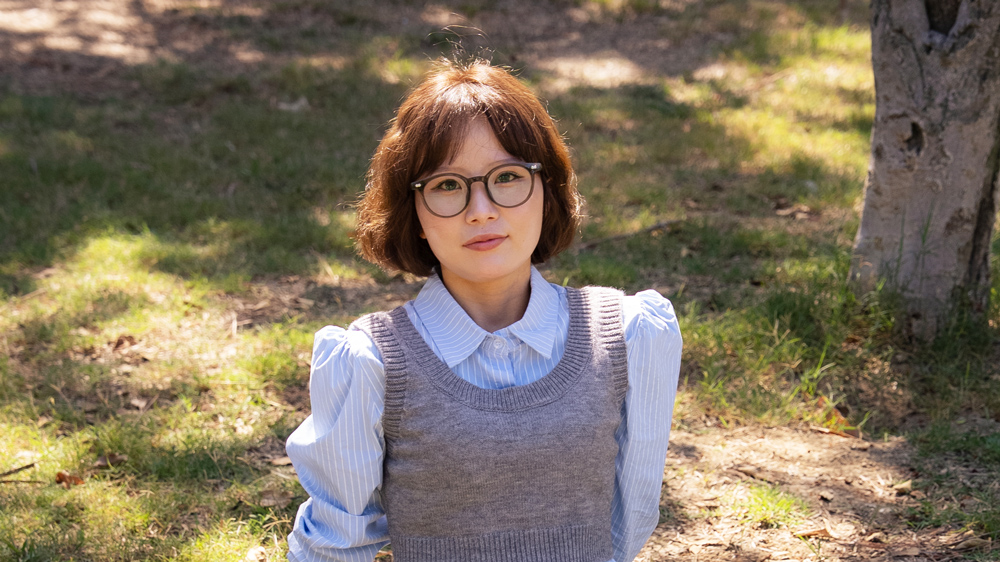
As a boatowner, I woke up early in the mornings to prepare supplies, get the crew together, and encourage them. I inspected the condition of the boat and hired people to help fix the engine and other faulty parts. Although I couldn’t go out to sea because I’m a woman, I was responsible for ensuring the ship operated smoothly.
But the harder I worked, the more government officials came to me—demanding baskets of clams and money. They justified their demands by saying: “The Party orders it,” threatening to punish anyone who refused. Every night I agonized over how to protect my people and keep my business going, and how I should respond. In those moments, I would remember the love and devotion my mother and aunt had poured into me and it gave me strength to persevere.
To escape my reality, at night I secretly watched South Korean TV shows on a television that was smuggled in from China.
My world turned upside down. With my friends who were also watching South Korean media, we would cautiously express our dissatisfaction together while also copying the hairstyles and outfits we saw in dramas. Sometimes, we would even try to mimic South Korean words or accents when talking or texting together.
But under Kim Jong Un, punishments became much more severe. Two people I knew were executed for watching and sharing foreign media. Our lives became harder, control over young people became more intense, and our resentment began to grow.
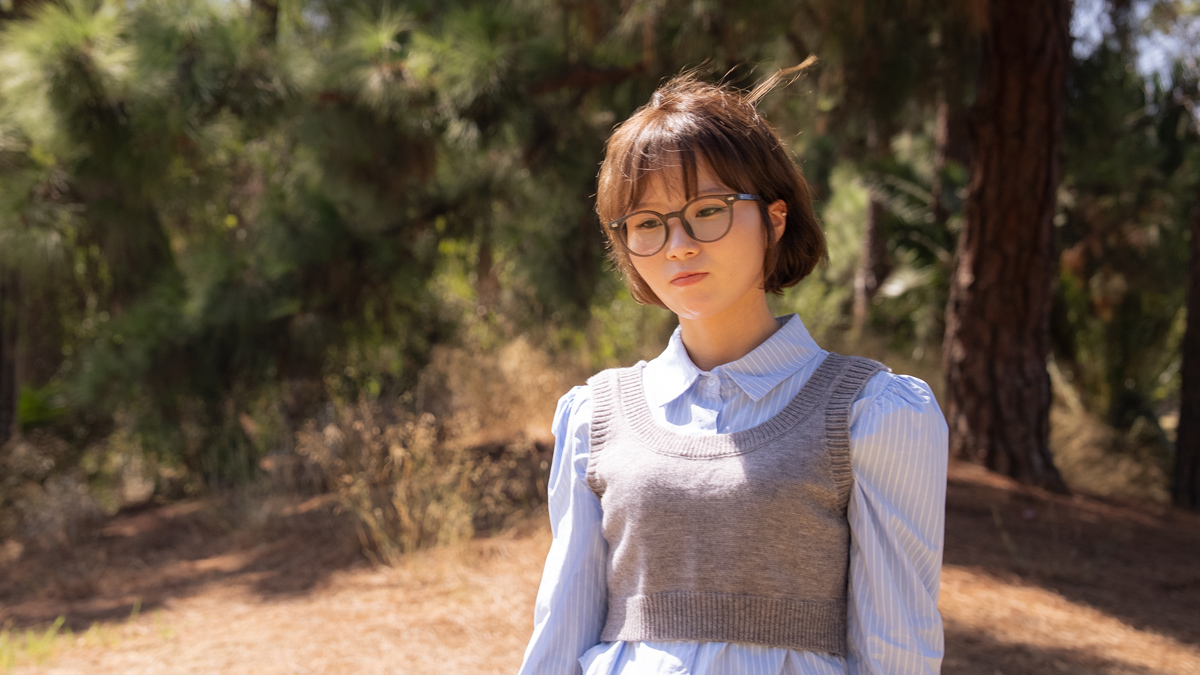
But no matter how much they tried to repress us, frustrated young people like me continued watching forbidden content as a way to forget reality. Foreign media has quietly found its way into North Korea for decades. As I grew up, it began spreading more than ever before, through USBs passed between friends or broadcasts picked up on illegal devices.
Many defectors, like me, can remember the exact episode of a TV show, a specific South Korean song, or even a traffic report, that planted the first seeds of doubt.
Of course, dramas and movies don’t tell the whole story, but they show a life that contradicts everything we were taught. And it makes you wonder: if life is so different out there, why does it have to be this way here?
I realized it doesn’t just show people that different lives exist. It gives them the belief that their life could be different. And that belief gives people the courage to choose a different future.
The thing about information is once you learn something, you cannot unlearn it. I remember watching people on my screen speak freely, laugh openly, and pursue their dreams—things that were unimaginable in North Korea. For the first time, I wondered if everything we were taught might be wrong. That doubt led to questions, and my curiosity became too strong to ignore. Now that I had seen the truth, I could never go back to the person I was before.
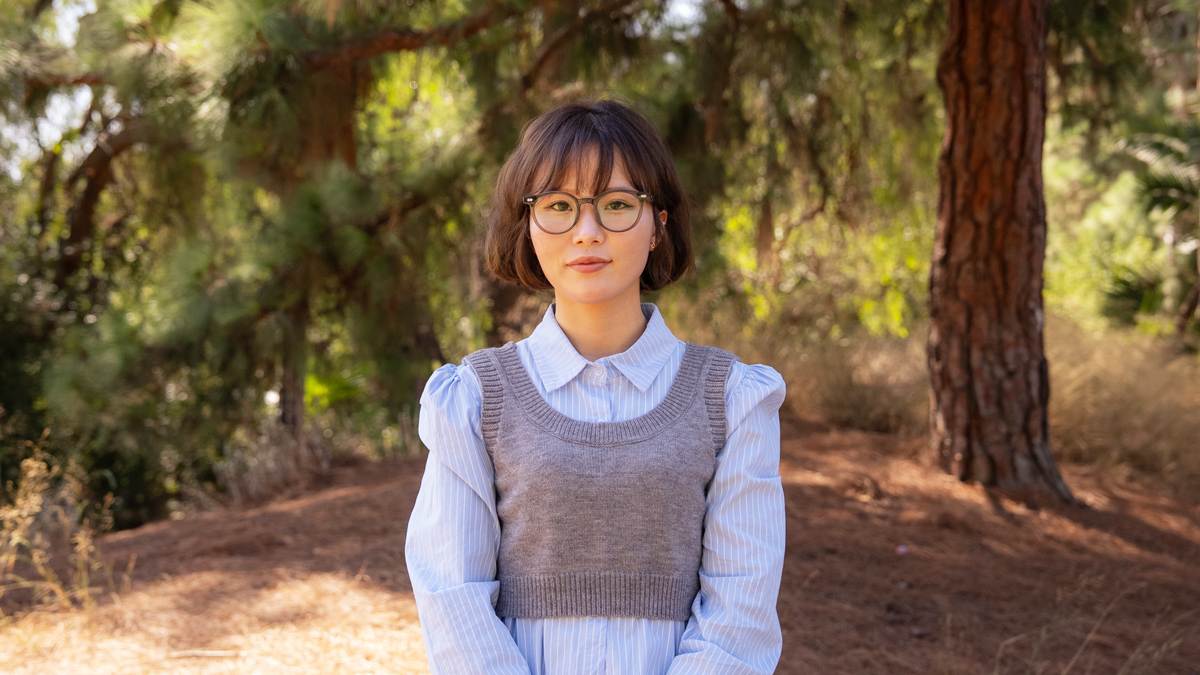
Escaping North Korea cannot be explained by the simple word “leaving.” This was especially true for me because I escaped together with my mom and my aunt. They had placed their trust in me when they gave me money for that boat. And now I was placing my trust in that boat to carry us across the sea to freedom.
I planned our escape in complete secrecy.
I bought a smuggled GPS device from China, carefully traced our route, observed the currents and tides, learned the patrol schedules of the guard boats, and figured out the blind spots of the coastal guard posts. I meticulously checked the condition of the boat and quietly prepared all the food and supplies we would need. I trained my body for the wind and the waves, and my mind for the terror of being caught.
Some nights I woke up in a panic. Other times my confidence crumbled and I thought, maybe I should give up and just accept the life I have. But in those moments, I imagined what waited at the end of the journey.
I wasn’t leaving just to stay alive. I was leaving so that I could live like a human being.
On the night we left, we climbed into my boat and pushed off into the dark water. I gripped the rudder and let the current carry us south, carefully navigating around the guard posts and patrol boats who were on the water looking for people like us.
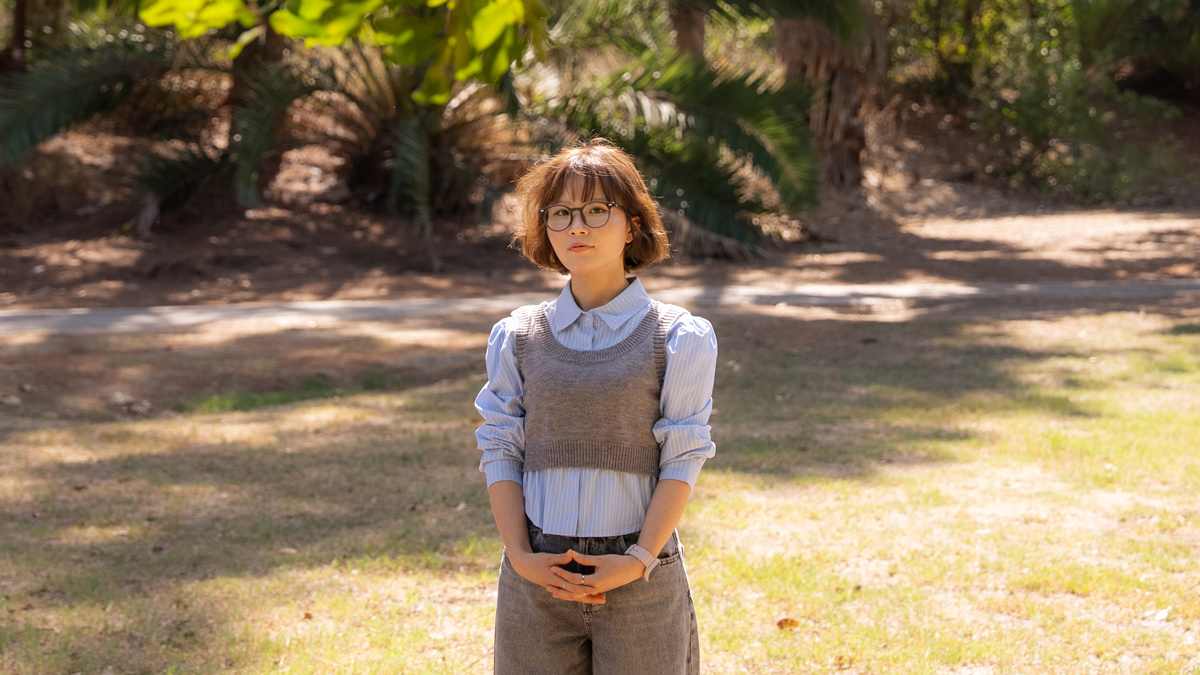
I knew what would happen if we were caught. Arrest. Endless investigations. Humiliation. Public trials. Political prison camp. And the possibility that I might lose the people I loved most in the world.
My mother and aunt were trembling with fear. I had to hide my own fear to tell them what I could only hope. We will survive. We spent the night being tossed back and forth on the East Sea. Black waves lifted our boat like a toy before smashing it down again. Every crash sent water over the sides and threatened to swallow us up.
Suddenly, a patrol ship appeared. Its lights stabbed the water, blinding us, and started coming closer and closer. It was coming for us. My chest pounded so hard I felt it might burst. I thought of the sleeping pills we had brought.
We had agreed that if capture became inevitable, we would rather take our own lives. It was a fate we preferred to execution or prison camps. As the coast guard closed in, I wondered, is it time for the pills?
But I refused to give in. We were so close. I steered away from the searchlights, surrendered the boat to the churning water, and pushed on forward.
Suddenly, the patrol vessel stopped and turned back around. They could no longer chase us. We had reached the maritime border. The sea calmed, as if it was welcoming us to freedom. And as the sun rose, we saw the outline of land.
A South Korean fisherman, hearing radio reports that North Korean patrols were in pursuit, realized we were the boat being chased. He steered his boat toward us and said, "Welcome. You are safe now."
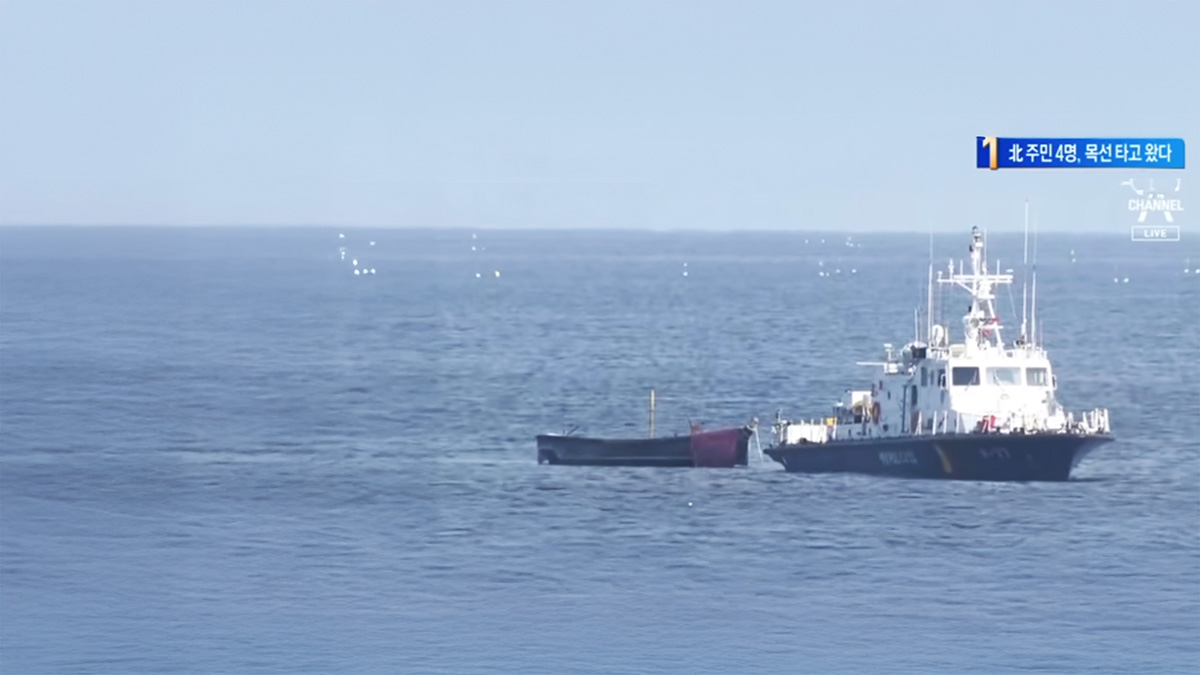
It’s been almost two years since we arrived in South Korea.
I still remember moving into our apartment and using a showerhead for the first time, experiencing hot water flowing straight from the tap. I couldn’t believe it. That day, my mother, my aunt and I took turns showering, laughing, and saying to each other, “So this is what a human life feels like.”
For the first time in my life, I could choose my studies, my job, my clothes, my hobbies—even the way I spoke—for myself. It felt like an entirely new world. We were being reborn, leaving behind a past of silence and control for a life with dignity and a future we could choose ourselves.
My mother began studying for a professional certification. And my aunt enrolled in social welfare classes to help others. I studied hard and was recently accepted into Ewha University. I have also been active in North Korean human rights activism and I even started a YouTube channel to show the world what it looks like to start a new life in South Korea.
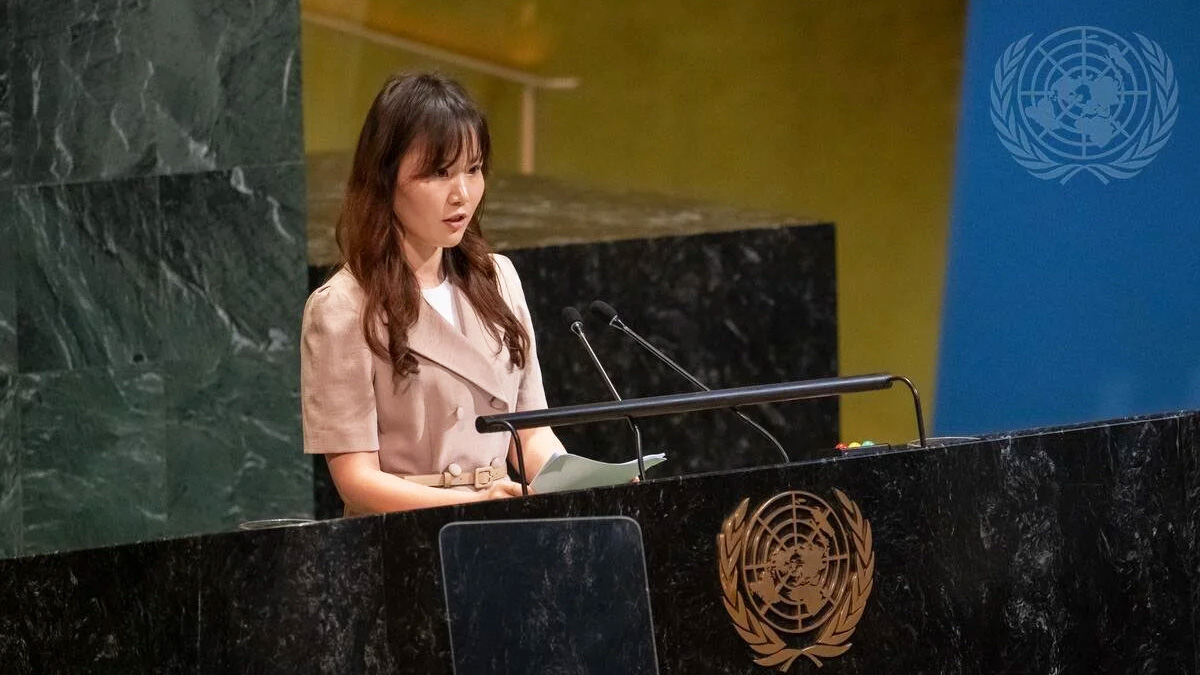
Hope is dangerous for the North Korean government. Millions of people live with anger and sadness, but even more live in resignation. Most do not realize their rights are being violated—they don’t know what “rights” are. I once believed it was normal for the state to control every part of our lives. I thought every country lived this way.
But the moment you realize life could be different, hope begins to take root. And once hope exists, change is no longer unimaginable.
My dream is that someday North Korea will be a place where young people choose their own paths, where no one is punished for their words, and where every person lives as the true owner of their life. While so much of North Korea’s reality is dark, change is already happening. And what sparks that change is information. A single truth from the outside world, a glimpse of what life could be, can plant a seed of doubt, or ignite a spark of hope.
That’s why I speak out. If I don’t tell my story, who will tell it for me? If I stay silent, will the death of my friends, and the suffering and starvation my family endured be forgotten?
Right now, in North Korea, there is someone just like me—sitting in a dark room, secretly watching a South Korean broadcast, quietly wondering: Could I also live like that?
I want my story to prove that this hope can become a reality. I want to stand in the middle of that change. Not just as someone who escaped to enjoy freedom, but as someone determined to one day share that freedom with all North Korean people.
Freedom is not given, but it is something we can achieve. With your support, we can write a future where all North Korean people are free.
Foreign media gave Gyuri a glimpse of the outside world—and the courage to seek freedom.
Increasing North Korean people’s access to outside information is one of the most effective levers for change in the country. And that is exactly what we’re doing at Liberty in North Korea
In partnership with North Korean defectors and engineers, LiNK develops tailor-made technology, tools, and content that help people inside the country access more information more safely. These glimpses into the wider world build people’s resilience to the regime’s propaganda, and emboldens them to imagine a different future for themselves and their country.
Help fuel work that’s directly supporting North Koreans driving change on the inside.




